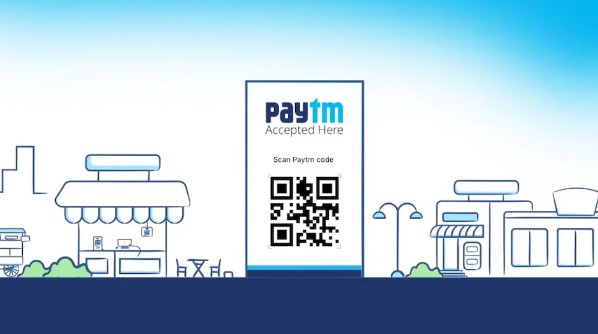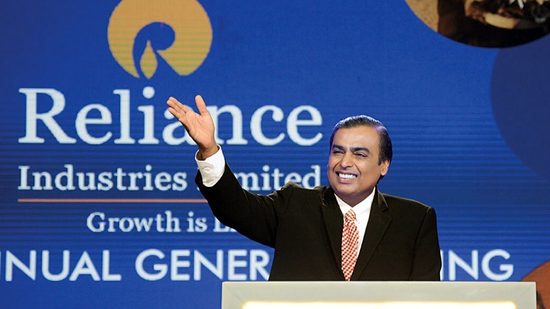
The company said the board has approved paytm share buyback worth up to Rs 850 crore through the open market.
The parent company of payments solutions provider Paytm, One97 Communications, authorized a paytm share buyback programme on December 12 for Rs 850 crore, priced at Rs 810 per share.
The company informed the stock exchanges that it would “undertake the buyback of up to Rs 850 crore (excluding buyback taxes and other transaction costs) at a maximum price of Rs 810 per share” and had chosen the open market route through stock exchanges method, which would take a maximum of six months to complete.
Paytm, the top supplier of digital payments and banking services in India, is getting ready to launch its buyback programme, which will total 850 crore. On December 13, the buyback plan was approved by a unanimous vote of all directors, including all independent directors. After carefully examining the estimated investment requirements needed to promote long-term wealth creation, the choice for the buyback plan is made. Vijay Shekhar Sharma, the founder and CEO of the business, would not take part in the sale of shares, nevertheless. Going forward, attention will be paid to Paytm shares.
Paytm’s founder and CEO, Vijay Shekhar Sharma, stated on Tuesday, “Over the last year, there has been a clear business momentum, and we are ahead of schedule. When we consider the prospects for revenue generation in our primary payment and credit business, we are confident that we will be able to provide a healthy amount of cash flow for investments in sales, marketing, and technology. We appreciate our shareholders and their participation in our public market journey.
Sharma thinks a Paytm share buyback at this time would be very advantageous for all of our stakeholders and would increase long-term shareholder value.
Here are 10 key Paytm buyback share tips:
1. The company will start a buyback programme with 850 crore worth of equity shares to be repurchased. The buyback will be conducted on stock exchanges using an open market mechanism.
2. The buyback price is set at a maximum of 810 per share, almost 50.13 percent more than the share’s current market price of 539.50. (as of December 13). Paytm expects to finish the buyback process in no more than six months.
3. At the maximum buyback price and volume, 10,493,827 equity shares — or about 1.62% of the company’s paid-up share capital as of March 31, 2022 — would be the maximum number of equity shares that could be repurchased. According to Paytm, if the amount of shares purchased is less than the maximum buyback price, the actual number of equity shares purchased may be greater than the maximum buyback shares, but the maximum buyback size will always apply.
4. Paytm intends to use roughly 50% of the maximum repurchase size, or approximately 425 crore (or 50% of 850 crore). A minimum of 5,246,913 equity shares will be purchased by the firm in the buyback programme, taking into account the maximum repurchase size and price.
5. Vijay Shekhar Sharma, founder and CEO of Paytm, and Madhur Deora, executive director, president, and group chief financial officer, will not take part in any share sales until the repurchase period is through. The senior management is still concentrating on long-term growth and wealth creation for all stakeholders, according to the regulatory filing.
6. As of December 9, 2022, the promoter and the promoter group do not own any equity shares in Paytm under the pre-buyback shareholding pattern. While international investors hold the vast majority of Paytm’s shares—roughly 72.85%—domestic institutions only hold about 1.82%. In the meantime, around 25.33% of the company is owned by the Indian public, corporations, and other parties together.
7. The company’s board has decided that buying back Paytm shares will increase shareholder value. The business stated in its filing that due to Paytm’s strong financial performance, clear route to cash flow creation, and surplus cash as a result, the board has decided that a share buyback would be beneficial for its shareholders.
8. In addition, Paytm intends to keep disciplined investing in order to promote the long-term development of value across technology, sales, marketing, and other fields. The board of the corporation has determined that there is extra cash that might be used to buy back shares. The Paytm board also thinks that this buyback is a demonstration of confidence that the business is on track to achieve cash flow profitability and that it won’t have any bearing on its near-term growth or profitability ambitions.
9. According to Paytm, the total cost will exceed roughly $1,048 crore assuming a full buyback of 850 crore and associated buyback taxes.
10. Paytm is on track to meet its previously announced goals of reaching EBITDA before ESOP costs profitability by the end of the third quarter in September 2023. Paytm has been successful in enhancing unit economics and monetisation for the payments business over the past 18 months. In addition, the company’s lending division has experienced significant growth and has contributed to the bottom line, demonstrating operating leverage and improving EBITDA before ESOP cost margin to -9% in the most recent quarter from -51% in the quarter ending in March 2021.
It’s noteworthy that Paytm keeps repeating that the funds from the IPO are not going toward the Paytm share buyback plan.
A Paytm representative stated on Tuesday, “The business has made sure there is extra liquidity before submitting a request for a buyback, which signifies that all financial needs have been properly budgeted.” The management maintains its focus on creating long-term value for its shareholders and is confident in solid operational performance. We would also like to use this occasion to point out to you that, due to rules, the company is not permitted to use IPO cash for any suggested buybacks.”
With more than 5.5 million devices deployed in the first two months of the third quarter, which concluded in November 2022, Paytm has had a strong start to Q3 FY23. This has helped the business solidify its position as the industry leader in offline payments. Additionally, the company’s loan distribution division continued to expand quickly, with disbursements reaching a 39,000 crore annualised run rate at the end of November. Not only that, but the Paytm Super App has the highest levels of consumer engagement, with 84 million average monthly transactional users (MTU) for the two months ending in November 2022, up 33% year over year.
Shares of Paytm finished at 539.50 on the BSE, up 2.16%. The market value of the business exceeds 35,031 crore.
In general, a firm will purchase back its equity shares from its current shareholders, typically at a price over the market price, as part of a corporate action. The total number of shares outstanding in the market decreases when it buys back shares.
The BSE website lists the following benefits of a paytm share buyback: an alternative method of capital reduction without the need for court/CLB(NCLT) approval; increased long-term shareholder value; improved earnings per share; improved return on capital, return on net worth,and provided an additional exit route to shareholders when shares are undervalued or thinly traded; improved consolidation of stake in the company; prevented unwanted takeover bids; and returned surplus cash to shareholders.
The indicative maximum number of equity shares that could be repurchased at the maximum buyback price and the maximum buyback size is 10,493,827, according to Paytm. As of March 2022, this equals roughly 1.62 percent of the company’s paid-up share capital, it noted.
The regulatory filing stated that the overall expenditure “would be in excess of roughly Rs 1,048 crores,” assuming a full buyback of Rs 850 crore and associated buyback taxes.
According to Paytm, “at least 50% of the sum specified as the maximum buyback size, i.e., Rs. 425 crore,” will be used for the buyback.
To oversee and carry out the Paytm share buyback plan, the company’s board of directors established a buyback committee.
The board decided that a share buyback would be beneficial for shareholders after observing Paytm’s “momentum of financial success, clear route to cash flow production, and excess cash as a result,” according to the exchange filing.
The decision was made following a “detailed evaluation of forecasted investment requirements to promote long-term value creation,” according to a statement from Paytm’s board, which found that there is excess liquidity that may be “productively applied to a buyback of shares.”
The business further stated that the share repurchase plan is “not being oriented toward” the revenues from its first public offering (IPO).
A repurchase at this time, according to Paytm CEO Vijay Shekhar Sharma, will “immensely benefit our stakeholders and will drive long-term shareholder value.”
“Over the past year, there has been a definite business upswing, and we are ahead of schedule.” We remain confident in our ability to generate robust revenues and cash flows to invest in sales, marketing, and technology as we consider the monetisation prospects in our core payment and credit businesses,” Sharma continued.
Paytm announced consolidated income from operations for the three months ended in September 2022 of Rs 1,914 crore, an increase of 76.2 percent over the similar period of the previous fiscal. Top-line growth was up 14% sequentially.
However, the business reported a consolidated loss of Rs 571.5 crore in the second quarter, which was higher than the loss of Rs 473.5 crore in the same quarter last year.





